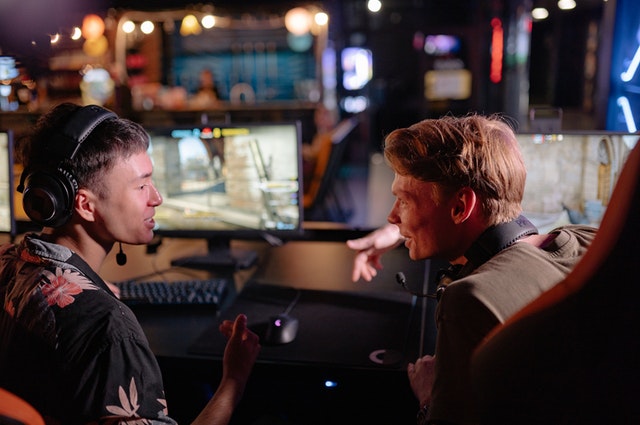Video game modifications are changes made to a video game by a user. Some people make their own games, while others use the content of others’ games. In this article, we will discuss some common types of video game modifications, their market impact, and Copyright infringement. Throughout the article, we’ll also explore the growing community of modders. Read on to find out more. This article will also explore the issue of copyright infringement and the future of the industry; or to learn more, visit this site.
Copyright Infringement
Video game modifications may violate a copyright owner’s rights if they use the original game code without their permission. A copyright holder’s rights can be enforced by registering their work with the U.S. Copyright Office. While the entire computer code does not need to be registered, the first and last pages must be. If you are unsure, consult an IP lawyer. Infringing copyright may result in the mod not being released, or a lawsuit could ensue.
Copyright infringement occurs when third-party software is used to create content for a video game. Even though the content is created with the permission of a third party, it is not the work of that individual. This means that even if the content is published under a creative commons license, it may not be owned by the creator. Infringing upon a copyright owner’s rights can be expensive.
Video game copyright is complicated. An example of this is the difference between a ghost hunting game and a Pac-Man game. While both are legal, they are not the same thing. The legal definition of copyright protects the expression of an idea, not the actual idea. Since this can be difficult to interpret, it is best to seek legal advice from a qualified attorney. A company such as New Media Rights can help.
While some video game mods may be covered by the fair-use doctrine, others may not. The courts must conduct a fact-specific inquiry to determine whether a mod infringes copyright. Micro Gen and Galoob both support this characterization. However, the Micro-Star decision creates a presumption against fair use. While video game mods are often deemed illegal, the legal precedents for video game mods are not entirely clear.
While DMCA strikes of the Am2R remake were a corporate greed move by Nintendo, it could also be interpreted as an attempt to protect the Metroid IP from copyright infringement. Despite this, Nintendo released a remake of “Metroid II” a year after striking down the game mod. However, in the case of “Metroid II,” Nintendo’s actions were reasonable. Its decision, while not ideal, was a necessary step for the protection of its IP.
A Growing Community

As the growing community of video game modders continues to grow, it is important to note that it is not all about creating games and adding new features. Many of these individuals work in extremely grueling conditions, often months before a game is released. Some have even turned their hobby into a full-time career, as Sjoerd de Jong, a former modder who became a professional game designer, shows in his new book, “Modding Games: The Art and Science of Video Game Modders
To attract new users, a game must enable mod creation. This means that it should provide both first-party tools and enable third-party tools. These will draw more people to the growing community of video game modders. The Steam Workshop has helped this community grow. Since then, the number of people creating video game mods has steadily increased. The Steam Workshop has also made it easier for people to create their own mods.
The growth of the video game modding community has led to a significant amount of fan content, tribute videos, and tribute videos. The growing community of video game modders is a reflection of the changing nature of the gaming industry. While the games are still owned by their respective developers, modding communities have begun to embrace a more egalitarian approach to the creation and maintenance of mods. It is important to note that, unlike in many other fields, there is no single, standardized code of conduct for modders.
While there are many positive aspects of video game modding, there are also concerns. Many corporations restrict the creation of mods. This policy is an example of censorship of creative modification. It is also contrary to the basic ethical assumptions of game ownership. In addition, censorship of video game mods may lead to the loss of an account, character, or even years of hard work. In such a scenario, the gaming community is inevitably negatively affected, and corporate sanctions could have disastrous consequences.
Some of these concerns are legitimate, however, because there are pro and anti-social aspects of the video game modding community. Many modders may be involved in cybercrime, harassing their victims, or even stealing. While a negative aspect of video game modding is the alleged link to cybercrime, the positive aspects of modding should be considered. And while the growing community of video game modders is a great thing for gamers, it may be a gateway to other forms of cybercrime.
Market Impact
The impact of video game modifications has been studied since the early 90s, and the scope of this field is enormous. A common example is Counterstrike, a popular user-created modification of Half-Life, which has sold more than 4.2 million copies. Modifications of video games are a form of market-driven innovation that game companies have increasingly sought to control and protect. Increasing numbers of video game publishers and developers are recognizing the importance of ensuring that their content is legally protected.
The process of video game modding is widely accepted by game developers, as they often provide tools to modders and offer rewards for their efforts. Mods can change the look and behavior of a video game and are generally aimed at extending the game’s replay value and interest. Modifications are classified into five broad categories: art mods, user interface mods, game computer customization, game control hacking, and video game conversions.





